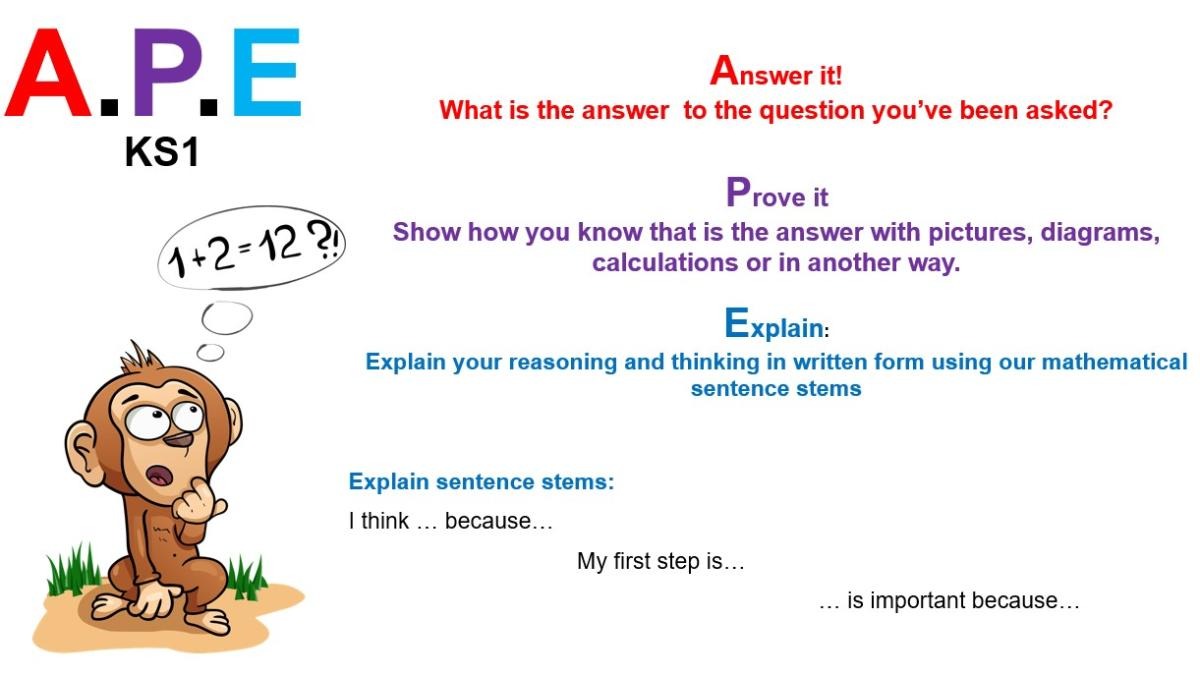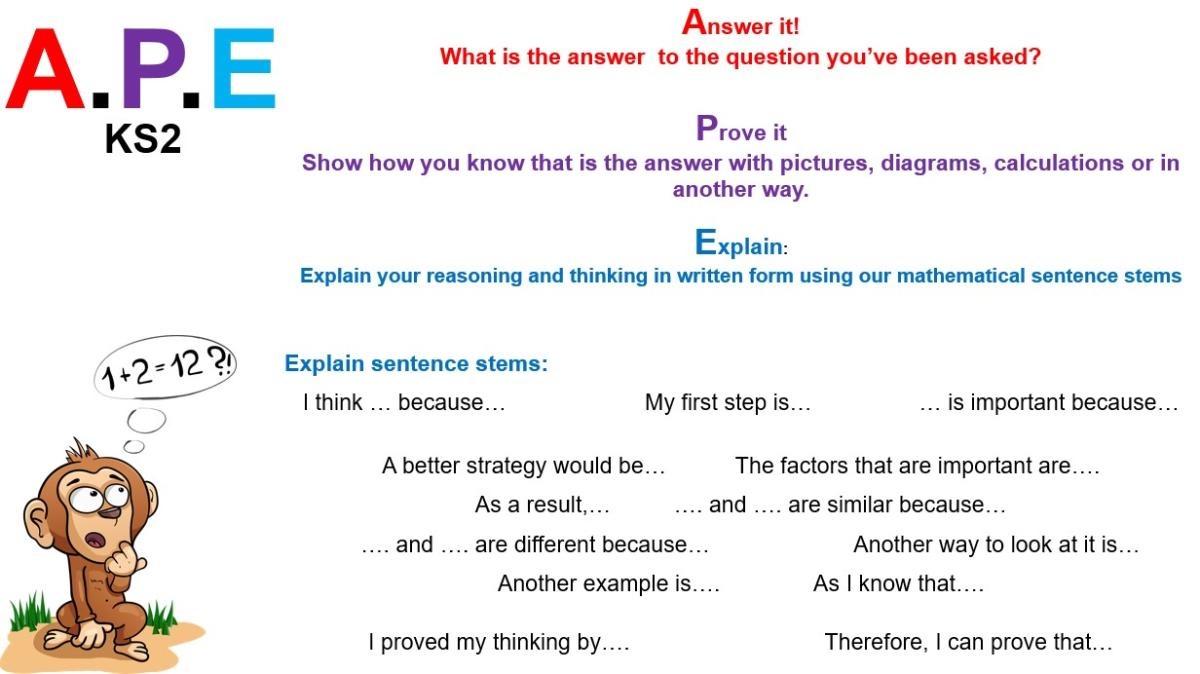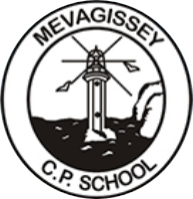 Proud to be a part of Cornwall Education Learning Trust
Proud to be a part of Cornwall Education Learning Trust

Mathematics
“Mathematics is a creative and highly inter-connected discipline that has been developed over centuries, providing the solution to some of history’s most intriguing problems. It is essential to everyday life, critical to science, technology and engineering, and necessary for financial literacy and most forms of employment. A high-quality mathematics education therefore provides a foundation for understanding the world, the ability to reason mathematically, an appreciation of the beauty and power of mathematics, and a sense of enjoyment and curiosity about the subject.” (The New national curriculum in England framework document, July 2013)
Intent
Mathematics is an important discipline that we want all pupils to enjoy and master as it is essential for everyday life. Our aspiration is for every child to see themselves as a mathematician - demonstrating a confident attitude towards tackling problems both in and out of the classroom and understanding the importance of maths in the wider world.
Our aim is for our pupils to approach mathematics with a positive, can-do attitude. Teachers have high expectations and promote the belief that ‘We can all do maths!’. We teach the National Curriculum, using White Rose to deliver daily mathematics lessons. The objectives in each block are broken down into a series of carefully planned small steps, which focuses on securing and deepening pupils understanding of mathematical concepts through manageable steps. Mistakes and misconceptions are embraced as points for new learning and support pupils to embrace challenges, take risks and to be more resilient.
We want children to be fluent with mathematical fundamentals and procedures, be able to recall facts rapidly and accurately, reason mathematically using correct vocabulary and be able to solve increasingly more complex and sophisticated problems. Further, we want our pupils to confidently apply and transfer key knowledge and skills to new contexts and recognise the interconnectedness of maths to other subjects and understand that maths is important in the wider world and serves a real purpose.
Implementation
Daily Mathematics Lessons:
At Mevagissey School we have adopted a teaching for mastery approach that supports all children regardless of background, ability or additional needs to deepen their understanding of maths and to improve progress for all.
We use the White Rose Maths Schemes of learning (WRM) designed to support a mastery approach to teaching and learning. The WRM curriculum focuses on pupils developing skills of fluency in the fundamentals of mathematics, being able to reason and to solve problems. Pupils in year groups in the main, move together through the curriculum content. Differentiation is demonstrated through abler pupils being encouraged and challenged to go deeper whilst others are given additional support and intervention including, use of concrete equipment to support tasks, adult support in lessons, pre-teaching of some key ideas to increase confidence and participation in lessons.
In all classes, teachers will use a concrete-pictorial-abstract approach to support children to understand the maths they are learning and to be able to use it elsewhere. All pupils, regardless of prior experiences of mathematics, will utilise concrete and pictorial resources; they are used as a key tool to develop the pupils’ depth of understanding and the visualisation of a mathematical topic.
- Concrete representation: a pupil is first introduced to an idea or skill by acting it out with real objects. This is a ‘hands on’ component using real objects and is a foundation for conceptual understanding.
- Pictorial representation: a pupil has sufficiently understood the ‘hands on’ experiences performed and can now relate them to representations, such as a diagram or picture of the problem.
- Abstract representation: a pupil is now capable of representing problems by using mathematical notation, for example 12 x 2 = 24.
In the Early Years Foundation Stage, continuous provision is carefully planned to ensure a variety of mathematical activities are available for children to access freely. These child-led activities are balanced with adult-led opportunities to work more directly with children 1:1 or in small groups. Teachers and other adults in the setting, model and use questioning to encourage pupils to explore mathematical concepts. Teachers also identify opportunities for maths learning and enhancing provision outdoors, celebrating the unique qualities of the outdoor environment. Children use natural resources and are encouraged to learn maths through all their senses, including touch, smell, sound and taste. Mathematical language is modelled to pupils in order to encourage discussion during play and through books and rhymes. In reception, White Rose planning is used to support the Early Learning Goals, to ensure that children are given the opportunity to master the fundamental mathematical skills.
Substantive Knowledge/Daily Fluency:
Every class has daily opportunities to practice fluency, core number work and consolidation of prior learning. This may take the form of whole class, small group or individual support, number bonds, times tables, 'Fluent in five', 'Flashback 4', 'Times Tables Rockstars' or 'Mastering Number'.
EYFS/KS1:
Mastering Number:
EYFS and Key Stage 1 follow the Mastering Number programme run by the NCETM. The programme's aims are to secure firm foundations in the development of good number sense for all children from Reception through to Year 1 and Year 2. The aim over time is that children will leave KS1 with fluency in calculation and a confidence and flexibility with number. Attention will be given to key knowledge and understanding needed in Reception classes, and progression through KS1 to support success in the future.
KS2:
Fluent in Five provides a daily set of arithmetic practice, designed to help children develop and maintain fluency in both written and mental calculations. The structure of Fluent in Five is also designed to help children distinguish between written and mental calculations.
Disciplinary Knowledge:
Children will apply their Substantive Knowledge through reasoning and problem solving activities. The children have opportunities to do this through White Rose challenges and Red Hot Challenges.
At Mevagissey School, we can often be seen ‘GOING APE’! ‘Answer it, Prove it, Explain it, … APE,’ challenges are planned to extend and deepen the learning of pupils. This might be through exploring different ways to solve the same problem, responding to or creating their own generalisations, providing them with questions where there is no clear signpost so they have to devise their own strategies to tackle them effectively, or explaining ideas or misconceptions that have arisen. We strive to put the magic into learning so that pupils develop mathematical fluency, reasoning and problem solving skills, and of course a love of number!


Calculation policy:
Our calculation policy has been written to ensure clear progression from the foundation stage to Y6, building upon previously learned skills. This is reviewed every year and is also revised with each new member of staff during induction.
Impact
The impact of having a well-structured, well-taught maths curriculum is strongly seen at the end of Key Stage 1 and 2 where children have consistently been achieving good results in mathematics on National Standard Assessment Tests. A high percentage of pupils have been at the expected standard at the end of year 6 and an increasing proportion have been achieving at greater depth.
| Key Stage 1 Maths Attainment | 2017/18 | 2018/19 | 2021/22 |
|---|---|---|---|
| % of children reaching the expected standard (EXS) in Maths | 82% | 81% | 81% |
| % of children reaching the greater depth standard (GDS) in Maths | 14% | 19% | 19% |
| Key Stage 2 Maths Attainment | 2017/18 | 2018/19 | 2021/22 |
|---|---|---|---|
| % of children reaching the expected standard (EXS) in Maths | 89% | 86% | 86% |
| % of children reaching the greater depth standard (GDS) in Maths | 39% | 29% | 27% |
The impact we will see throughout Mathematics:
In lesson observations over time, evidence will show:
- Children show independence in lessons
- Children will show confidence in believing that they will achieve.
- Each child achieves objectives (expected standard) for their year group.
- Children will be able to talk about their previous and current learning.
- The flexibility and fluidity to move between different contexts and representations of maths.
- The chance to develop the ability to recognise relationships and make connections in maths lessons. Children will develop as critical thinkers. They will think logically and rationally in their Maths lessons, understanding the connections between different areas of maths.
- Learners will have the confidence to tackle problems and engage in reasoning tasks independently. Mathematical concepts or skills are mastered when a child can show it in multiple ways, using the mathematical language to explain their ideas, and can independently apply the concept to new problems in unfamiliar situations.
- Children show a high level of pride in the presentation and understanding of the work. The implementation of the Mastering Number Programme and Fluent in Five will lead to fluency in addition and subtraction facts, and to a deep understanding of number and number relationships.
In order to see mathematical development and success, leaders and teachers will see the following mathematical behaviours from adults and children within lessons:
- High-quality teaching to develop problem-solving abilities using the A.P.E structure.
- Teachers and other adults provide challenging problems, encouragement, and assistance in learning how to approach complex problems using the A.P.E structure.
- When confronted with challenging or unfamiliar tasks, children will exhibit persistence and confidence. Metacognitive skills will be developed amongst pupils to help them assess, plan and approach challenging mathematical problems.
- Children will use these learnt independent learning skills in other areas of the school curriculum: independent learning, no passive learners, belief in themselves as learners.
Summative assessment opportunities:
- Low-stakes testing – show improved retention of key facts, for example, time tables facts
- End of unit checks in White Rose – these are administered at the end of a unit of work to assess understanding and application of the small steps taught
- Termly summative assessments – PUMA tests are administered at the end of every term to check progress against age-related expectations
- End of Key Stage assessments EYFS - Children are assessed at the end of Reception against the Early Learning Goals to assess their understanding of Number and Numerical Patterns.
- Year 2 (End of Key Stage 1) – children complete National Curriculum assessments which are used to inform a teacher assessment in mathematics.
- Year 6 (End of Key Stage 2) - children complete National Curriculum assessments which are used to inform a teacher assessment in mathematics.
These impact indicators will be assessed through: end of unit assessments, termly assessments, pupil tracking, pupil progress meetings, pupil conferencing, lesson observations and drop ins, performance management and moderation.
Maths Games and Home Resources
Times Tables Rock Stars Launch Day!

On Friday 14th October, we held our annual TT Rock Stars launch day in school! On this day the Y2 and KS2 children participated in times table battles such as Battle of the Bands, Arena and Rock Slam, in which they played against other classes/children in school to try and earn rewards through their knowledge of the times tables.
All the children completed a baseline assessment (called a Gig) on TT Rockstars in class, which means that any games that they play are tailored to their individual needs, as determined by the questions they were able to answer on their baseline test, therefore they would not find it too challenging for their needs or be at a disadvantage in any way!
Times Table Rock Stars
Times Tables Rock Stars is a carefully sequenced programme of daily times tables practice. Each week concentrates on a different times table, with a recommended consolidation week for rehearsing the tables that have recently been practised every third week or so. This format has very successfully boosted times tables recall speed and is a lot of fun! Every child has a login for this from the school.
Numbots
NumBots is all about every child achieving the “triple win” of understanding, recall and fluency in mental addition and subtraction, so that they move from counting to calculating.






